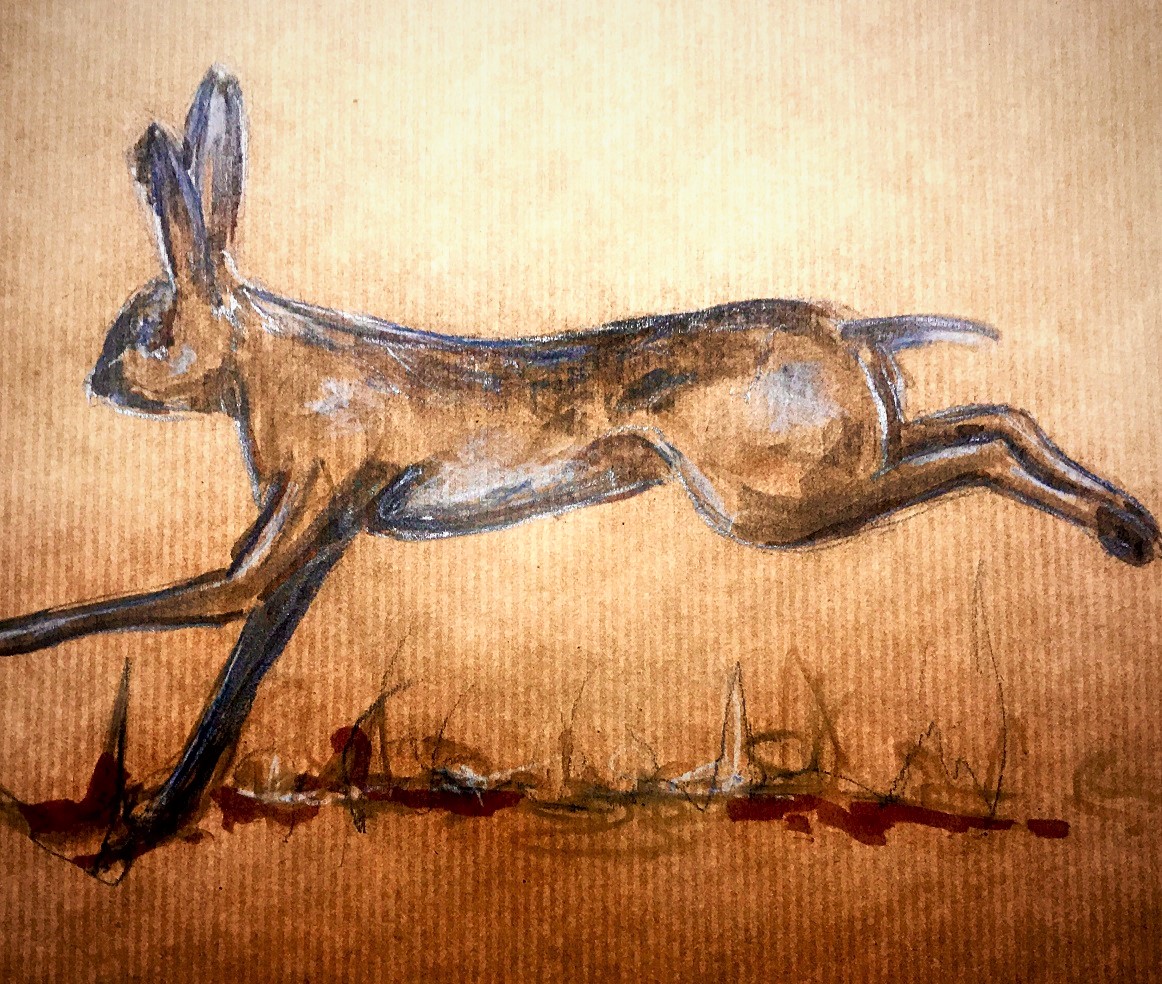Being locked down at home during the Covid-19 epidemic, I had a lot of time to clean forgotten corners of my house. One afternoon I found myself sitting on the basement floor and going through old photos, immersed in memories.
I halted at a picture of my ex-boyfriend from our high school days. He was standing in the middle of a group of enthusiastic hunters, smiling triumphantly, a carpet of dead rabbits at their feet.
My memories went back to his self-assured smile which I remember so well. He loved telling our friends anecdotes from his hunting trips, proudly describing the animals he and his group had killed. This was a source of bitter arguments between us. An animal lover like me could not bear seeing cruelties even on television.
“How can you do such terrible things?” I would protest. “These are living creatures just like us!”
“You are too sensitive,” he would ridicule me. “That’s not how you survive in this world.”
“That’s meaningless killing,” I would insist, but in vain. For him hunting was a fun sport, and he would go on explaining how hunting actually helps maintaining the animal population.
A couple of years later we separated, disappointed by each other’s attitude to life.
We met again years later at a charity event of an animal rights organization. I, as a journalist, was there to cover the event.
“You!?” I exclaimed in surprise. “What are YOU doing here?”
He chuckled. “I am a different person now, Alma. Converted.”
I looked at him with suspicion. His self-assurance had not left him. “And who, if I may ask, converted you?”
“I had an Albert Schweitzer experience.”
“He spoke to you in your dreams?”
He laughed again. “No, no. Remember? He went on a boat on some river in Africa, and when he passed through a group of hippopotamuses, he suddenly had a vision of life.”
I examined his face, wondering whether to believe him. But he seemed serious. “Good for you. That’s twenty years too late, but still… Tell me more about it.”
We sat down. As in the old days, he loved telling stories.
It all began, he told me, during a semester break from university, when he went with his friends to Austria on a hunting trip. On their second day they went to the forest in the early morning hours, when the mist lay motionless over the grass. They were sitting in wait at the edge of a clearing, awed by the magic of nature, when they heard a cracking noise coming from the underbrush. To Max it sounded like a deer. He responded quickly and fired a shot in the direction of the movement. They ran to the presumed location of the animal, and were shocked to find an old man lying in a pool of blood. It turned out to be a local who was collecting mushrooms.
Luckily, the man eventually recovered, although his right arm remained paralyzed, but Max was deeply traumatized. He kept blaming himself for his carelessness, and once back home, he sank into depression. He lost interest in his previous projects and abandoned his university studies.
Lying in bed or sitting on the balcony much of the time, he reviewed his life so far, and it dawned on him that he had never done anything he could call “a good deed.” He felt that he had always been self-centered, uncaring, coldhearted. He came to believe that he must do something good to redeem his life. But what kind of thing?
The answer came when he met his future wife Susanna who grew up in a village of Albert Schweitzer for orphans in Switzerland. She introduced him to Schweitzer’s writing, which she had known from childhood. After reading Schweitzer’s diaries, Max realized that redemption would not come from some particular act, but from changing his entire attitude towards the world around him.
At last he found himself with renewed energies. He sold his guns which had given him so much pride. He started taking interest in various social causes, but he still did not know what to do. One evening, when his mother surprised him with braised rabbit, once his favorite dish, he felt so revolted by the thought of the poor dead animal that he decided then and there to never eat meat again. Shortly afterwards he decided to dedicate himself to animal protection.
“So here I am,” he ended his story. “That’s how I learned what ‘reverence for life’ means.” And as if to illustrate his words, he quoted several sentences from Schweitzer.
I later searched for these words in an anthology of Albert Schweitzer I own, “Albert Schweitzer Speaks Out” (1964). And if my memory did not betray me, these were the words:
Through reverence for life, we come into a spiritual relationship with the universe. The inner depth of feeling, which we experience through it, gives us the will and the ability to create a spiritual and ethical set of values that enables us to act on a higher level, because we then feel ourselves truly at home in our world. Through reverence for life we become, in effect, different persons.
